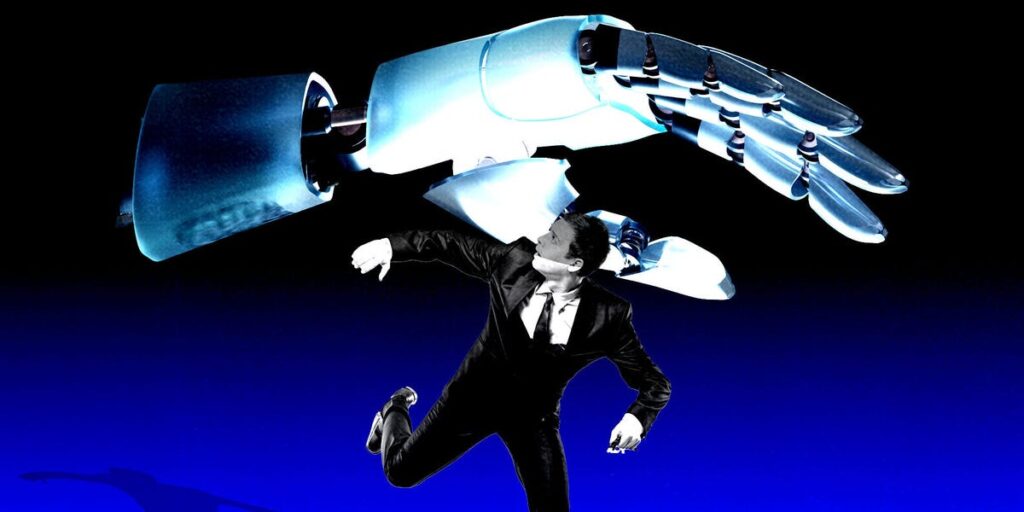One tech investor isn’t buying the corporate spin about AI boosting workers.
“Big companies talk about, like, ‘AI isn’t replacing people, it’s augmenting them,'” said Victor Lazarte, a general partner at Benchmark — the venture capital firm that has backed big names like Uber, Asana, Snap, and WeWork.
“This is bullshit. It’s fully replacing people,” he added.
Lazarte said on an episode of the Twenty Minute VC podcast published Monday that two professions should be especially nervous about AI: lawyers and recruiters.
He said law school students should think about what they could do three years from now that AI could not.
“There’s not going to be that many things,” he said.
Fresh associates often do law’s grunt work, and the legal tech industry is buzzing about how AI could cut down busywork.
Lazarte also said that AI models will soon be better than people at interviewing candidates — and far more efficient than companies’ messy, manual hiring processes.
Lawyers and recruiters are feeling the pressure
Legal and recruiting fields are already being reshaped by AI.
In March, an employment lawyer told Business Insider’s Melia Russell at a legal tech conference: “Lawyers are dinosaurs.”
“Lawyers need to wake up,” said Todd Itami, an attorney at the large legal defense firm Covington & Burling. Learning to use artificial intelligence was “imperative” for their success, he added.
On the recruitment front, startups are trying to automate the hiring process.
In March, BI reported that OptimHire — a startup using AI to replace job recruiters — had raised $5 million. The company says its AI agent, OptimAI Recruiter, can source candidates, conduct screening calls, and schedule interviews for hiring managers, reducing the time and cost of filling open roles.
BI reported in 2023 that HR and recruitment teams are increasingly using AI tools at multiple stages of the hiring process, from reviewing résumés to short-listing candidates. Tech leaders predicted the tools would make the hiring process faster for HR workers and could even prove valuable to job seekers.
Smaller teams, bigger profits?
While AI might be coming for jobs, Lazarte said it’s also going to supercharge companies.
With costs slashed and productivity soaring, companies will become more valuable — and much smaller.
“You’re going to have these trillion-dollar companies being done by very small teams,” he said. “People that own shares will get richer, founders will get way richer.”
But he warned that the rise of ultra-lean, AI-powered businesses could be a double-edged sword.
It could also be a “very destabilizing force,” Lazarte said, adding that these AI-powered businesses could unlock massive value for society but also risk deepening inequality.
And Lazarte doesn’t think AI’s influence will stop at the office.
“Pretty soon we’re going to have an app that just tells us what to do all day — and we’re going to love it,” he said. “We’ll be obedient to machines.”


